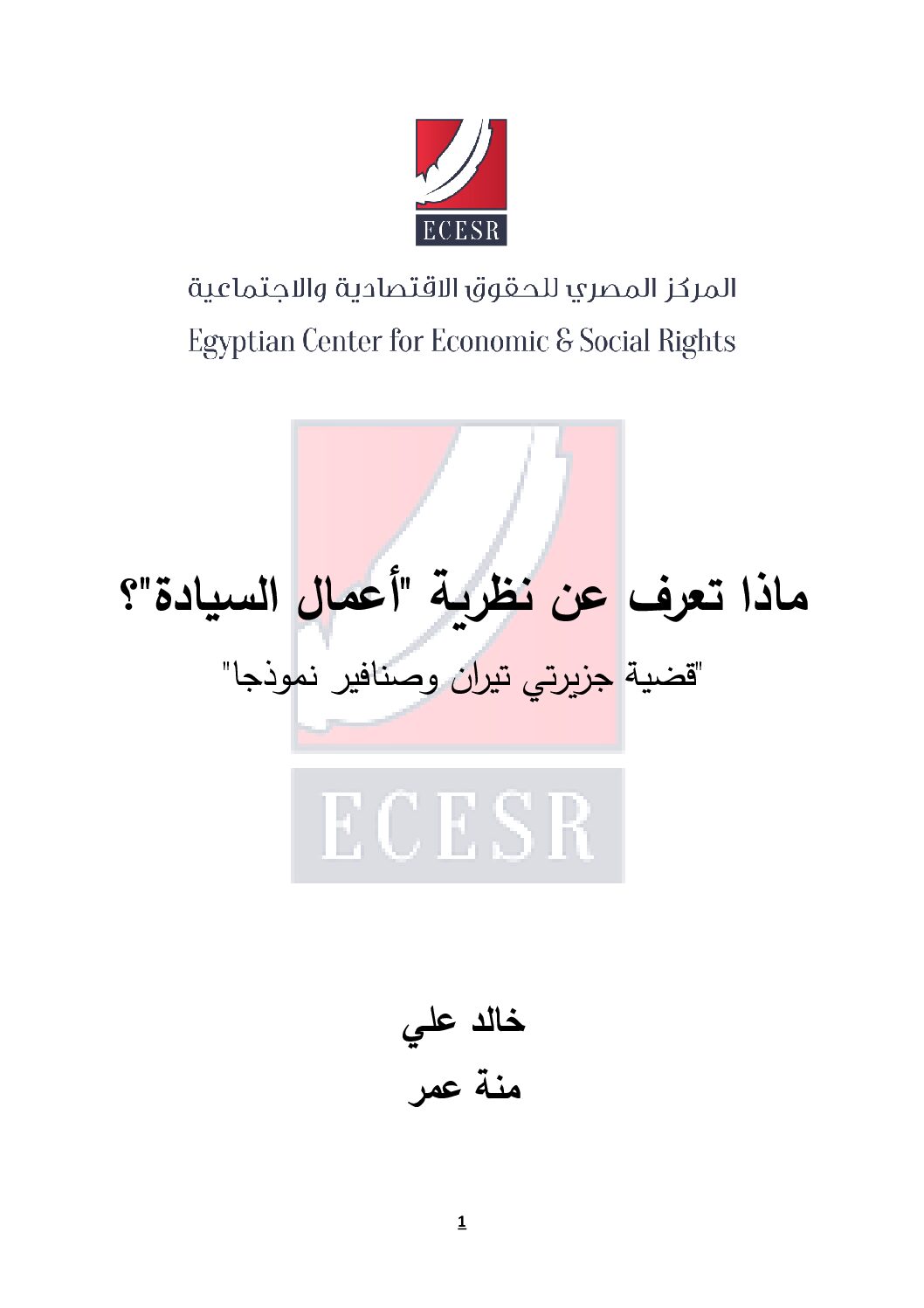Emergency Law before the Supreme Constitutional Court

On the international day of Human rights, The Commissioners of the Supreme Constitutional Court has held the first hearing of the appeal “No.103 for the constitutional judiciary year 39” on the unconstitutionality of some provisions of the Emergency Law.
lawyers Mohamed Shabana and Khaled Ali (The legal advisor of the Egyptian Center for Economic and Social Rights) advocated the unconstitutionality of the provisions of Articles 12, 14 and 20 of the Presidential Decree Law No. 162 of 1958 of the state of emergency, “emergency law”
The events of the original case are related to the accusation of Mohammed Fahim Hussein of committing an act of terrorism, which was known as the “Olive Cell” before 2010. The accused had been subjected to torture in order to admit acts he did not commit. Fahim had been referred to the criminal trial under the state of emergency which was imposed on the country then. The case continued to be considered in front of the Supreme State Security Court, however before the case was brought to trial, the state of emergency imposed on the country was lifted and the court decided to acquit the accused of all charges and sentenced other defendant, Nonetheless Ibrahim Mahlab, the Prime Minister and Deputy Ruler of the military issued a decision cancelling Cairo (Zatoun) criminal court ruling and decided to order a re-trial in front of another judicial court in spite of the absence of a state of emergency at this time which legalizing that procedure. The defendant had been sentenced in absentia to death.
Lawyers Mohamed Shabana and Khaled Ali had filed an appeal before the Administrative Court requesting the cancellation of the Prime Minister decision, yet the Administrative Court declined jurisdiction in the case, furthermore the lawyers appealed to the Supreme Administrative Court which decided to refer mentioned articles of emergency law to the Constitutional Court.
The appealed articles (12, 14 and 20 of the Presidential Decree Law No. 162 of 1958) had violated the independency of judiciary by permitting the president the right to ratify the verdicts of security state courts in order to be considered final also, the power to repeal judgments, and to order a retrial before another Chamber, while the Egyptian constitution only permitted the president the right to interfere criminal procedures only to give pardon.
It is noteworthy to mention, that In case the Constitutional Court response to this appeal and considered the unconstitutionality of these provisions, all judgments issued by the Supreme State Security Courts related to the application of the Emergency Law will not be subject to the ratification of the military ruler, and will give the defendants the right to appeal against these provisions.

